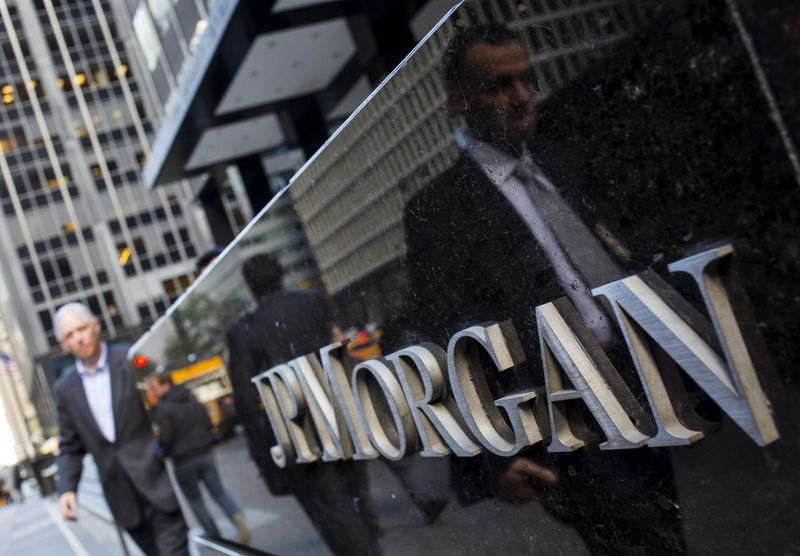This post was originally published on this site

JPMorgan (JPM) reported first-quarter earnings that surpassed Wall Street estimates, with a notable beat on both earnings per share (EPS) and revenue. The bank announced an EPS of $4.63, which was $0.44 higher than the analysts’ consensus of $4.19. Revenue for the quarter was also strong at $42.5 billion, exceeding the consensus estimate of $41.84 billion. Despite these positive results, JPMorgan’s stock price declined by 2% as NII guidance missed estimates.
The company’s reported revenue of $41.9 billion and managed revenue of $42.5 billion reflect a robust financial position. However, expenses rose to $22.8 billion, impacted by a $725 million increase to the estimated Federal Deposit Insurance Corporation (FDIC) special assessment. This increase contributed to a 2% rise in the overhead ratio. Credit costs totaled $1.9 billion, including $2.0 billion of net charge-offs and a $72 million net reserve release. The bank experienced a 16% increase in average loans, or a 3% rise excluding First Republic, while average deposits grew by 2%, or remained flat when excluding First Republic.
NII was $23.1 billion in the first quarter, and the company expects to earn $90 billion in NII for the year, which, while higher than prior guidance, is below the consensus of $90.68 billion.
Jamie Dimon, Chairman and CEO, commented on the results, stating, “We reported strong results in the first quarter, delivering net income of $13.4 billion, or $14.0 billion excluding a $725 million increase to the FDIC special assessment.” Dimon highlighted the bank’s capacity to reinvest for growth while maintaining an attractive capital-return profile, underpinned by a high CET1 capital ratio of 15.0% and leading returns.
Despite the strong first-quarter results, the stock’s downward movement reflects investor sentiment possibly swayed by broader economic concerns. Dimon acknowledged the challenges ahead, citing geopolitical tensions, persistent inflationary pressures, and the unprecedented impact of quantitative tightening. He emphasized JPMorgan’s readiness to prepare for a wide range of potential economic scenarios.
In terms of business performance, Dimon noted strong underlying performance across various segments. Client investment assets in the Consumer & Community Banking (CCB) division were up 25% excluding First Republic, and Investment Banking (IB) fees increased by 21%. The Corporate & Investment Bank (CIB) saw growth in Payments fees and new client relationships, while Asset & Wealth Management (AWM) reported a 14% increase in asset management fees.
JPMorgan’s results demonstrate the bank’s ability to deliver for shareholders, with a focus on customer growth, positioning for the future, maintaining its “fortress principles,” and raising the dividend. The bank also played a significant role in driving economic growth by extending credit and raising capital totaling more than $655 billion. Despite the positive earnings and revenue figures, investor reaction as reflected in the stock price suggests a cautious outlook for the banking giant.


